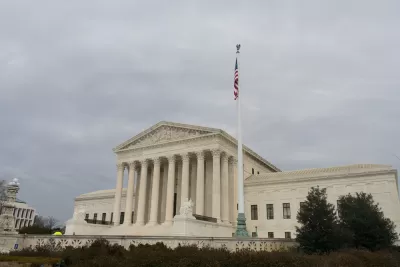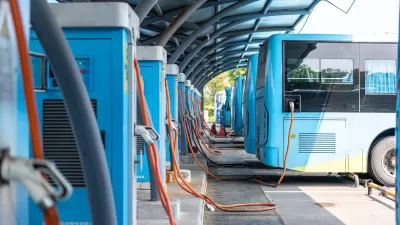If rectifying racial injustice no longer passes constitutional muster, what chance does the environmental justice movement have?

The U.S. Supreme Court’s ruling in Students for Fair Admissions, Inc. vs. President and Fellows of Harvard College rightfully made news when announced in June 2023 for its expected impact on affirmative action programs in college admissions.
Another potential consequence of the decision, according to an article by Alex Brown in the New Jersey Monitor, could be on the ability of environmental regulators to monitor and mitigate pollution in minority and low-income neighborhoods, a key tool of environmental justice efforts.
Emily Hammond, an environmental law expert and professor at the George Washington University Law School, is quoted in the article describing the conundrum: “The [Supreme Court] majority really reinforced the idea that a generalized government policy of rectifying past discrimination would not pass constitutional muster.”
Lawmakers around the country are scrambling to figure out how to respond. Many expect state laws to face lawsuits as a result of the precedent now set by the U.S. Supreme Court. Examples of laws potentially at risk include a law approved in Minnesota in 2023 that “forces regulators to consider cumulative pollution effects before issuing air quality permits in certain areas, including tracts with 40% or more nonwhite residents,” according to Brown.
The consequences could also reach the federal level. “The Biden administration established a ‘race-neutral’ screening methodology known as the Climate and Economic Justice Screening Tool to guide its efforts to direct 40% of federal spending across many agencies to disadvantaged communities,” according to Brown.
FULL STORY: It may have just gotten harder to protect minority communities from pollution

Planetizen Federal Action Tracker
A weekly monitor of how Trump’s orders and actions are impacting planners and planning in America.

Chicago’s Ghost Rails
Just beneath the surface of the modern city lie the remnants of its expansive early 20th-century streetcar system.

San Antonio and Austin are Fusing Into one Massive Megaregion
The region spanning the two central Texas cities is growing fast, posing challenges for local infrastructure and water supplies.

Since Zion's Shuttles Went Electric “The Smog is Gone”
Visitors to Zion National Park can enjoy the canyon via the nation’s first fully electric park shuttle system.

Trump Distributing DOT Safety Funds at 1/10 Rate of Biden
Funds for Safe Streets and other transportation safety and equity programs are being held up by administrative reviews and conflicts with the Trump administration’s priorities.

German Cities Subsidize Taxis for Women Amid Wave of Violence
Free or low-cost taxi rides can help women navigate cities more safely, but critics say the programs don't address the root causes of violence against women.
Urban Design for Planners 1: Software Tools
This six-course series explores essential urban design concepts using open source software and equips planners with the tools they need to participate fully in the urban design process.
Planning for Universal Design
Learn the tools for implementing Universal Design in planning regulations.
planning NEXT
Appalachian Highlands Housing Partners
Mpact (founded as Rail~Volution)
City of Camden Redevelopment Agency
City of Astoria
City of Portland
City of Laramie





























